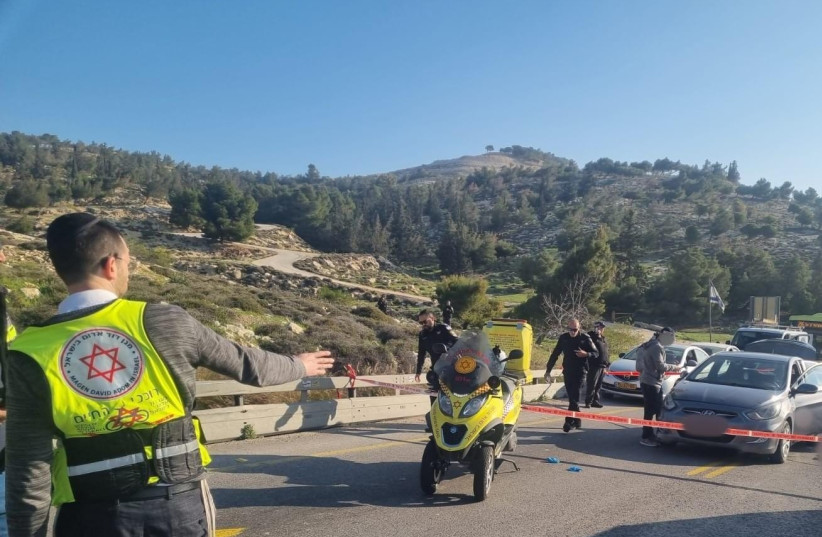Israeli ambulance service Magen David Adom (MDA) has established community-based emergency response teams that will provide medical treatment to wounded individuals when terrorists block access to hospitals, they announced on Tuesday.
The initiative, known as the Magen Project, was designed to address future military-style terror attacks.
The emergency response teams were developed in the wake of both the mass Iranian aerial attack and Hamas’s October 7 attack – in which terrorists murdered over 1200 people and kidnapped over 250 more.
MDA will also provide the teams with stores of medical equipment, and connect them to MDA’s National Operations Center, through which they will be integrated into a vast network of EMTs and paramedics.
During the October 7 attacks, Hamas terrorists deliberately isolated southern communities on the Gaza border with heavily armed bands of terrorists, who targeted ambulances and blocked roads in and out of these towns. While MDA responded quickly by dispatching EMTs and paramedics from its stations across the country, firefights between terrorists and responding police and troops necessitated MDA setting up impromptu treatment clinics until patients could be safely evacuated from the area. As a result, in some cases, injured people could not receive help until roads were secured.

The MDA hope that by training a Community Emergency Response Team (CERT) and integrating them with local security professionals, MDA will ensure that injured patients always receive critical care, even on the rare occasion when external teams cannot immediately get to the site of an attack.
What training will be provided?
Currently, MDA is establishing 1,000 CERTs, comprised of 10 to 25 members per team, in areas where the threat is most imminent, including cities in the north threatened by Hezbollah attacks, Gaza Border communities, and towns in the West Bank. Each team is being provided with emergency medical training and supplies based on local needs, according to Uri Shacham, MDA’s chief of staff.
“The communities are the best authorities on what they need,” Shacham said. “We’re working with each locality in a very personalized way to provide the kind of training and equipment that will be of most use to them.”
MDA provides CERT members who are already EMTs with specialized primary medical care training; it offers paramedics and doctors advanced critical training; and it makes first aid, CPR, and bleeding-control courses widely available. In addition, MDA will certify two members of each community’s security team as EMTs, so that, when necessary, emergency medical care can be provided even when access to the community is temporarily compromised.
Equally critical to the project, Shacham said, are the rescue and equipment vehicles operated by MDA teams. The Multi-Casualty Rescue Units, trailers equipped with a large stock of medical supplies to provide treatment for up to 10 seriously wounded and 20 moderately wounded patients, are designed to get supplies to the scene quickly.
MDA plans to equip hundreds of CERTs with emergency response vehicles assigned to two to three CERT members.
Finally, Magen David Adom will connect each CERT to MDA’s computer-aided dispatch system and create a detailed plan of operation — including the mapping of all equipment, medical professionals, and possible evacuation routes — and codify instructions on how to liaise with MDA. CERT members will be registered in an MDA database and officially dispatched to medical emergencies in their community.
“In the event of an emergency in an isolated community, MDA dispatchers at our operations center will be in contact with the designated community medics, who will describe the urgent needs with the level of detail and speed that is crucial in such scenarios,” said Shacham.
“With resources and training provided by Magen David Adom, and full integration with our cutting-edge dispatch system, we can maximize the potential that already exists in Israel’s towns and neighborhoods,” he added. “Working together, we can ensure that our communities are always fully protected.”
